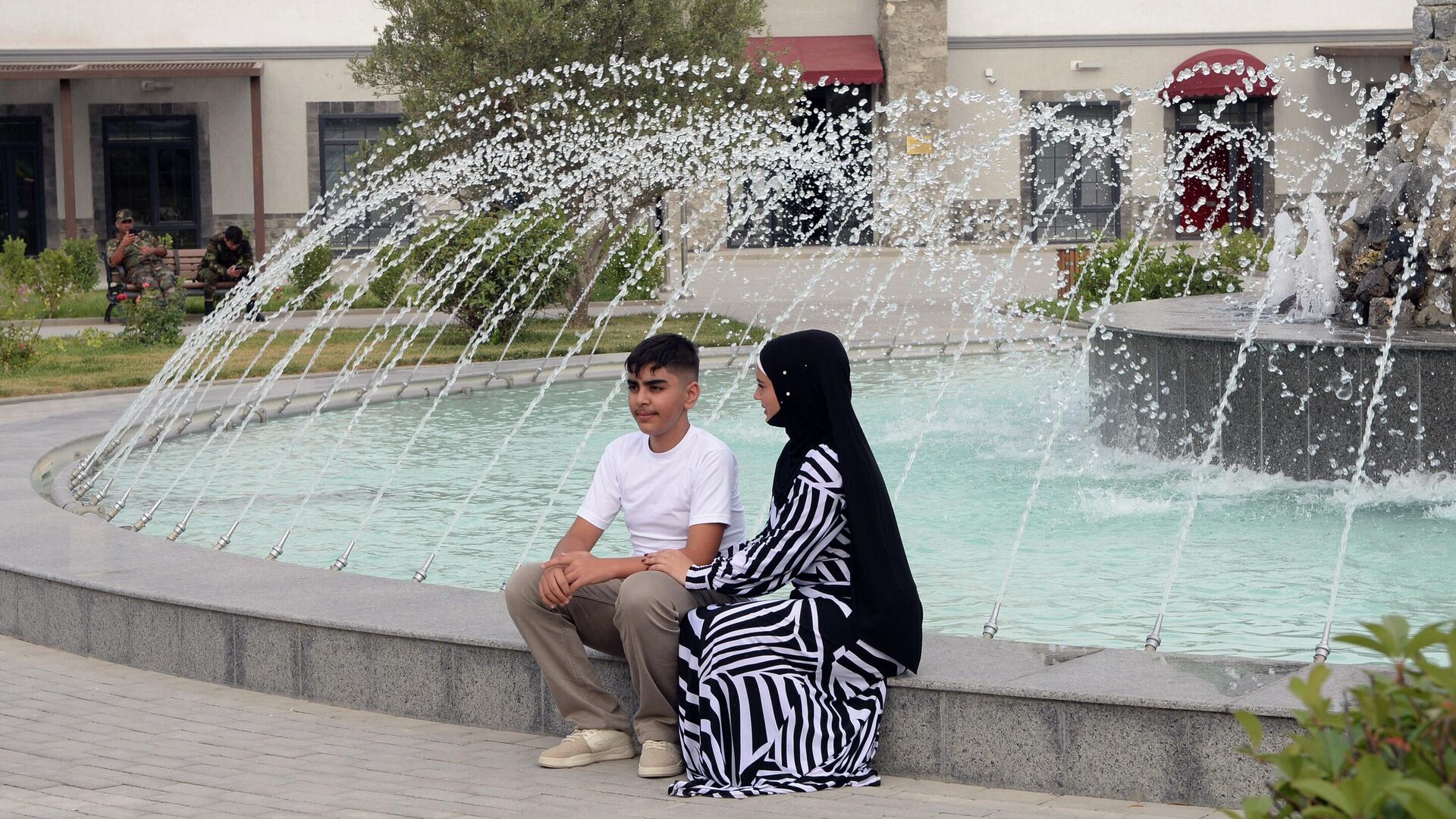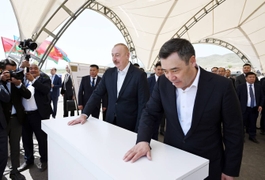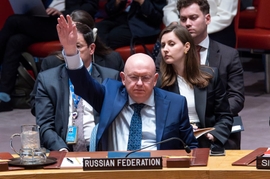One year has elapsed since the Azerbaijani government initiated the repatriation of former internally displaced residents (IDPs) to their native lands liberated from Armenian occupation in 2020.
On July 19, 2022, the inaugural group of IDPs was resettled in the village of Aghali, located in the Zangilan district, as part of the state-run “Great Return” program.
To date, 420 people from 86 families have been successfully resettled in Aghali, with further relocation expected to continue once the construction of new residential quarters is completed.
Aghali has been designed as the first smart village in the area, integrating advanced technologies and eco-friendly features. The village comprises 150 residential buildings, ranging from two to three stories, as well as a kindergarten, school, medical center, hydroelectric power plant, and other essential facilities. The development of Aghali revolves around five key components: housing, production, social services, smart agriculture, and alternative energy.
Moreover, Aghali hosts several offices, including Azerpost, the ASAN Service multi-purpose social services center, the DOST social support center, and the Center for Development of Small and Medium Enterprises. Additionally, an agricultural park is currently under construction in the village.
Following a 44-day war with Armenia in 2020, Azerbaijan regained control of its territories and the Azerbaijani government approved the “Great Return” program to facilitate the return of internally displaced persons to their native lands.
The longstanding conflict between Armenia and Azerbaijan over the latter's Karabakh (Garabagh) region had persisted for many years. Following the dissolution of the Soviet Union in 1991, Armenia launched a full-scale military campaign against Azerbaijan, resulting in the longest and deadliest war in the South Caucasus region. The war ended in a ceasefire in 1994, with Armenia forcibly occupying 20 percent of Azerbaijan’s internationally recognized territories. This occupation led to the deaths of over 30,000 Azerbaijanis and the expulsion of one million others in a brutal ethnic cleansing campaign conducted by Armenia. In 1993, Zangilan was captured by Armenian forces, resulting in the displacement of 42,700 residents and the district being left in a state of ruins.
On September 27, 2020, the decades-old conflict escalated when Armenia’s forces illegally deployed in the occupied Azerbaijani lands shelled military positions and civilian settlements of Azerbaijan. In response, Azerbaijani forces conducted counter-attack operations, liberating over 300 settlements, including the cities of Jabrayil, Fuzuli, Zangilan, Gubadli, and Shusha, after nearly 30 years of illegal Armenian occupation. The war concluded with a tripartite statement signed by Armenia, Azerbaijan, and Russia on November 10, 2020, resulting in Armenia also returning the occupied Aghdam, Kalbajar, and Lachin districts to Azerbaijan.
The “Great Return” program has facilitated the repatriation of more than 800 former IDPs to their homes in the liberated territories, including Aghali, the village of Talish, and the city of Lachin since 2022.
According to the government’s plans, a total of 2,000 families or 10,000 people are expected to return to their permanent residences by the end of 2023. Additionally, President Ilham Aliyev stated in a meeting with media representatives in Shusha that more than 150,000 people will return to the liberated Karabakh and East Zangazur regions within the next three years.
Between 2020 and 2023, the Azerbaijani government has allocated nearly $4.6 billion, including $1.28 billion in 2021, $1.29 billion in 2022, and $1.76 billion in 2023, for the restoration of the liberated territories.
During a government meeting on July 11, President Aliyev disclosed that the ongoing and upcoming restoration projects in these lands will require a total investment of $7 billion by the end of this year.







 President Ilham Aliyev shed light on the evolving contours of the peace process with Armenia during an international conference in Baku this week. ...
President Ilham Aliyev shed light on the evolving contours of the peace process with Armenia during an international conference in Baku this week. ...
 Azerbaijan and Armenia started the process of demarcation of their border on Tuesday, with the installation of the first border markers based on ge...
Azerbaijan and Armenia started the process of demarcation of their border on Tuesday, with the installation of the first border markers based on ge...
 Iranian President Ebrahim Raisi expressed Tehran’s readiness to participate in significant development projects in Sri Lanka during the inauguratio...
Iranian President Ebrahim Raisi expressed Tehran’s readiness to participate in significant development projects in Sri Lanka during the inauguratio...
 As the conflict between Ukraine and Russia escalates, the strategic importance of Kharkiv, Ukraine's second-largest city, has come sharply into focus.
As the conflict between Ukraine and Russia escalates, the strategic importance of Kharkiv, Ukraine's second-largest city, has come sharply into focus.
 Iran and Pakistan have signed eight cooperation documents in various fields, and agreed to strengthen ties to fight terrorism in the region.
Iran and Pakistan have signed eight cooperation documents in various fields, and agreed to strengthen ties to fight terrorism in the region.



